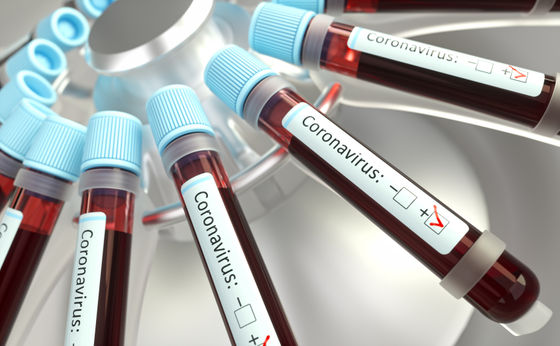'Human Challenge Test' to re-infect humans with the new corona has started

Human challenge trial launches to study immune response to COVID-19 | University of Oxford
https://www.ox.ac.uk/news/2021-04-19-human-challenge-trial-launches-study-immune-response-covid-19
Covid: Oxford to launch human challenge trial to study immune response
https://www.cnbc.com/2021/04/18/covid-oxford-to-launch-human-challenge-trial-to-study-immune-response.html
In August 2020, the world's first case of 'reinfection ' in which a person who recovered from COVID-19 was infected with COVID-19 again was reported. Studies published so far have shown that 'COVID-19 infection reduces the chances of the next infection by 84%,' while ' COVID-19 immunity lasts only a few weeks. ' Research results have also been reported, leaving many unclear points about the immunity benefits and duration of COVID-19 infection in humans.
Research results show that infection with the new corona reduces the probability of the next infection by 84% --GIGAZINE

So, a research team at Oxford University revisited people who had been infected with COVID-19 with the new coronavirus (SARS-CoV-) to investigate how the human immune system responds to a second infection. Announced that it will conduct an experiment to expose to 2).
The experiment is conducted in two phases, with different subjects participating in each phase. The first phase, which will begin in April 2021, will bring together up to 64 healthy participants aged 18 to 30 years who have been naturally infected with COVID-19 and, in a carefully controlled manner, SARS-CoV-2. To re-infect. For SARS-CoV-2 administered to the subject, the 'original strain' found in Wuhan, China is used.
After administration of the virus, subjects will be quarantined in a specially designed medical facility for a minimum of 17 days and undergo a variety of medical tests, including CT scans of the lungs and MRI scans of the heart. If the subject develops any symptoms, they will be treated with monoclonal antibodies. The subject will be discharged after the subject has no symptoms and the risk of infection has become zero, and at least eight prognosis surveys will be conducted after discharge.
In the second phase, which will start in the summer of 2021, SARS-CoV-2 will be administered to subjects different from the first phase based on the data collected in the previous stage trial, and the immune response caused by reinfection will be observed. The number of detected viruses is measured. It is expected that this will reveal what kind of immune response is effective for reinfection.

Helen McShane, a professor of vaccine science at Oxford University, said, 'Challenge trials, unlike natural infections, can be observed under strict control, providing insights not available in other studies. By re-infecting participants with COVID-19, it is possible to know the reaction of the immune system acquired by the first infection and the time when re-infection occurs, so that people can deepen their understanding of COVID-19 and people. Will help us develop inspection methods that can tell us exactly if we are protected from SARS-CoV-2. '
'This study has the potential to have a significant impact on future COVID-19 control, not just vaccine development,' said Shobana Balasingam, Senior Research Advisor at Wellcome Trust , which funds the experiment. It should also be useful for researching various treatments. '
Related Posts:
in Note, Posted by log1l_ks






